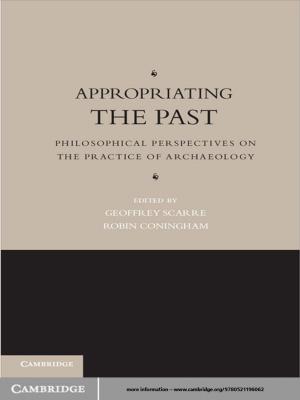The Themes of Quine's Philosophy
Meaning, Reference, and Knowledge
Nonfiction, Religion & Spirituality, Philosophy, Mind & Body, Reference & Language, Language Arts| Author: | Edward Becker | ISBN: | 9781139508100 |
| Publisher: | Cambridge University Press | Publication: | June 28, 2012 |
| Imprint: | Cambridge University Press | Language: | English |
| Author: | Edward Becker |
| ISBN: | 9781139508100 |
| Publisher: | Cambridge University Press |
| Publication: | June 28, 2012 |
| Imprint: | Cambridge University Press |
| Language: | English |
Willard Van Orman Quine's work revolutionized the fields of epistemology, semantics and ontology. At the heart of his philosophy are several interconnected doctrines: his rejection of conventionalism and of the linguistic doctrine of logical and mathematical truth, his rejection of the analytic/synthetic distinction, his thesis of the indeterminacy of translation and his thesis of the inscrutability of reference. In this book Edward Becker sets out to interpret and explain these doctrines. He offers detailed analyses of the relevant texts, discusses Quine's views on meaning, reference and knowledge, and shows how Quine's views developed over the years. He also proposes a new version of the linguistic doctrine of logical truth, and a new way of rehabilitating analyticity. His rich exploration of Quine's thought will interest all those seeking to understand and evaluate the work of one of the most important philosophers of the second half of the twentieth century.
Willard Van Orman Quine's work revolutionized the fields of epistemology, semantics and ontology. At the heart of his philosophy are several interconnected doctrines: his rejection of conventionalism and of the linguistic doctrine of logical and mathematical truth, his rejection of the analytic/synthetic distinction, his thesis of the indeterminacy of translation and his thesis of the inscrutability of reference. In this book Edward Becker sets out to interpret and explain these doctrines. He offers detailed analyses of the relevant texts, discusses Quine's views on meaning, reference and knowledge, and shows how Quine's views developed over the years. He also proposes a new version of the linguistic doctrine of logical truth, and a new way of rehabilitating analyticity. His rich exploration of Quine's thought will interest all those seeking to understand and evaluate the work of one of the most important philosophers of the second half of the twentieth century.















